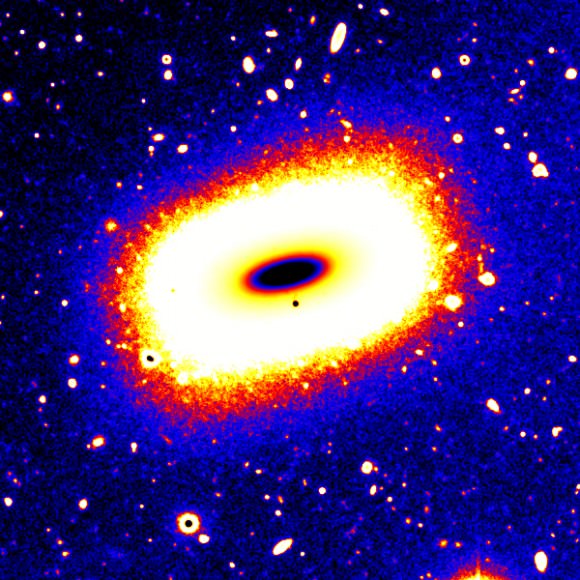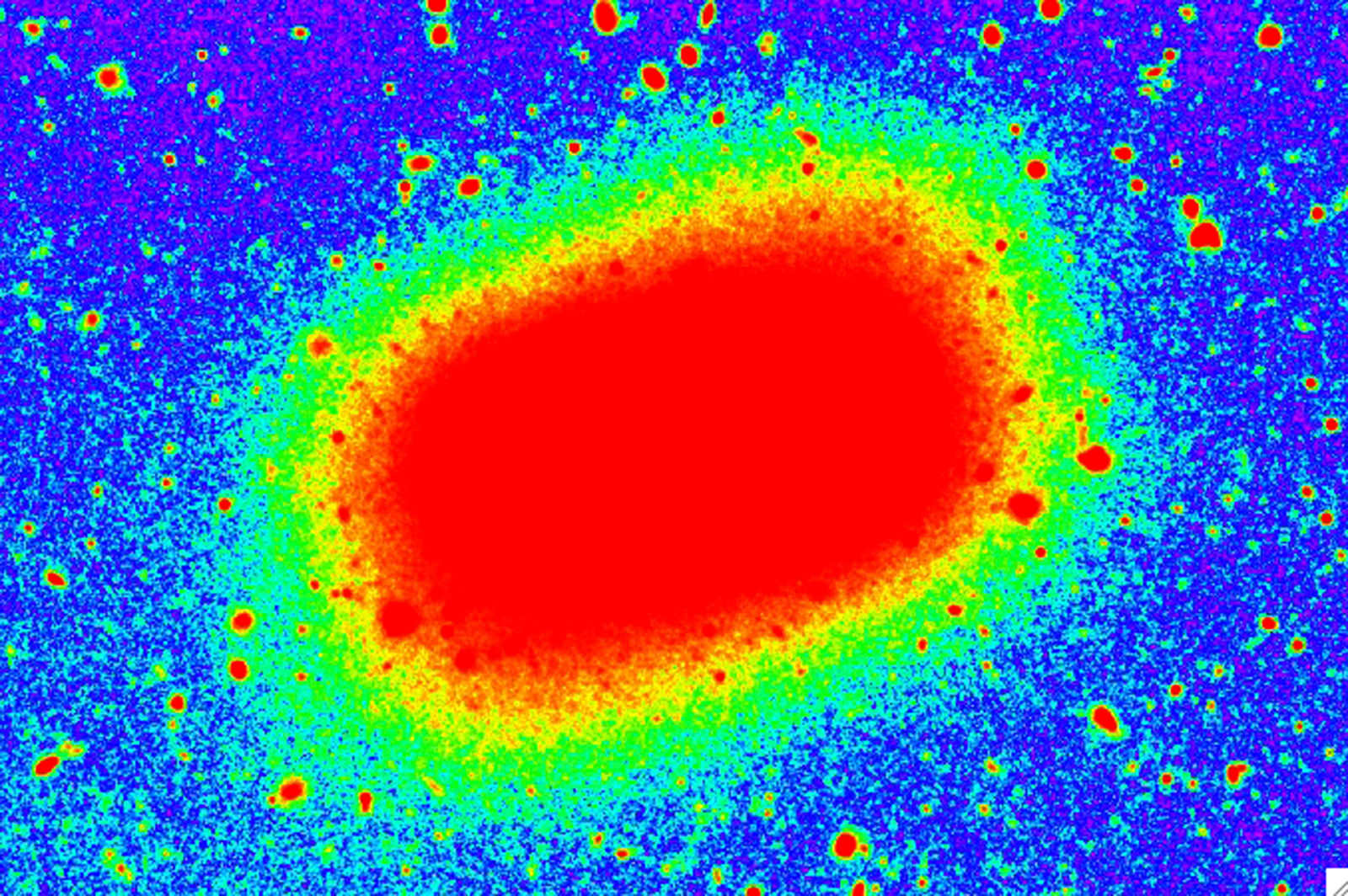[/caption]
It’s being called the “emerald-cut galaxy” — recently discovered by an international team of astronomers with the Swinburne University of Technology in Australia, LEDA 074886 is a dwarf galaxy located 70 million light-years (21 Mpc) away, within a group of about 250 other galaxies.
“It’s an exciting find,” Dr. Alister Graham, lead author and associate professor at Swinburne University Center for Astrophysics and Supercomputing told Universe Today in an email. “I’ve seen thousands of galaxies, and they don’t look like this one.”
The gem-cut galaxy was detected in a wide-field image taken with the Japanese Subaru Telescope by astrophysicist Dr. Lee Spitler.
It’s thought that the unusual shape is the result of a collision between two galaxies, possibly two former satellite galaxies of the larger NGC 1407, the brightest of all the approximately 250 galaxies within its local group.
“At first we thought that there was probably some gravitational-tidal interaction which has caused LEDA 074886 to have its unusual shape, but now we’re not so sure, as its features better match that of two colliding disk galaxies,” Dr. Graham said.
In addition to being oddly angular, LEDA 074886 also features a stellar disk inside it, aligned edge-on to our line of sight. This disk of stars is rotating at speeds of up to 33 km/second, although it can’t be discerned if it has a spiral structure or not because of our position relative to it.

“It’s one of those things that just makes you smile because it shouldn’t exist, or rather you don’t expect it to exist.”
– Dr. Alister Graham, Associate Professor, Swinburne University of Technology
Although rectangular galaxies are rare, we may eventually become part of one ourselves.
“Curiously,” Dr. Graham said, “if the orientation was just right, when our own disc-shaped galaxy collides with the disc-shaped Andromeda galaxy about three billion years from now we may find ourselves the inhabitants of a square-looking galaxy.”
(Let’s hope that it’s still “hip to be square” in another 3 billion years!)
The team’s paper will be published in The Astrophysical Journal. Read more on the Swinburne University press release here or on the Subaru Telescope site.
Image credit: Swinburne University of Technology


I presume this has a net angular momentum. That would presumably be a vector perpendicular to the inner disk shown in this image.
LC
Several other rectangular-appearing galaxies are also listed in the paper, among them NGC 4488, Sextans A, VCC 1699 and IC 3370.
While the reasons galaxies may appear “rectangular” or “boxy” differ from one galaxy to the next, LEDA 074886 strongly resembles a rotating, vertically-heated galactic disk, essentially a “short cylinder seen edge-on”, very similar to the aforementioned boxy giant galaxy IC 3370: http://articles.adsabs.harvard.edu/cgi-bin/nph-iarticle_query?1987AJ…..94…30J&data_type=PDF_HIGH&whole_paper=YES&type=PRINTER&filetype=.pdf
This makes sense. The appearance is due to a large thickening of the galactic disk.
LC
Perhaps this galaxy are in their transitional period. And like how snapshot of bird at a certain sequence of flight/angle could be passed for an UFO, we have to see it evolve some more in order to understand it.
Is it possible to have a dwarf barred spiral? If so, I could see a rectangular galaxy as the core of a barred spiral that lost its’ arms (maybe due to interaction with another, larger galaxy).
I just invited a pair of geese into our lives, but how could you have known. here they are seen in a cardboard box. Even your little astronaut been caught spying, aye smart star gazers, you must now find alternate jobs in chinese factories. you must stop causing disturbance in the sacred heavens, effecting other’s lives without their knowledge. Some day, people are going to wake up and trash all your little astronauts out of existence. Be prepared for the worst.
and kindly stay away from my birds.
whether they like to meditate under a tree or run around in loops in the garden, feeding on space invaders.
whether they like to meditate under a tree or run around in loops in the garden, feeding on space invaders.
Some people are saying that the golden mean phi is shaping galaxies into geometric shapes and fractals. Example photos are shown at this website. Could phi be somewhat shaping structures like star nebula and galaxies?
http://holographicgalaxy.blogspot.com/2012/03/rectangular-geometric-oriented-galaxies.html